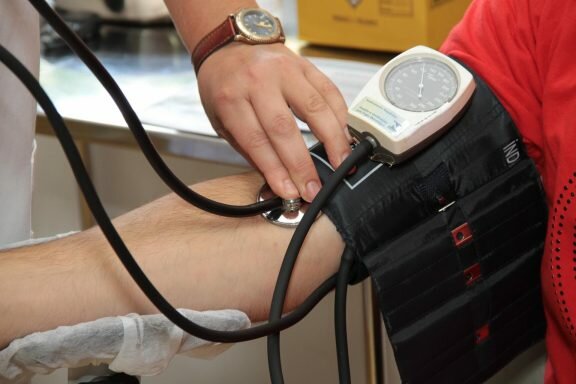The risk of death after a heart attack is lower than previously thought, and more widespread prescription of beta blockers could further improve survival rates, according to new research.
Researchers from the Business and Local Government Data Research Centre contributed to a study which calculated the chances of survival after acute myocardial infarction (AMI) in the general population aged 60 and over in the UK. Lisanne Gitsels and Elena Kulinskaya are part of the Centre’s ‘Methodologies for Big Data’ research stream and carry out research in their roles at the School of Computing Sciences, University of East Anglia.
The study also looked at the effectiveness of prescription of statins, aspirin, ACE inhibitors and beta blockers, the most common treatments, as well as heart surgery (coronary artery bypass graft and percutaneous coronary intervention).
They found that life expectancy of people who have had at least one heart attack by the age of 60 was, on average, lowered by 6 to 6.5 years. People who had suffered a heart attack by the age of 75 had their life expectancy decreased by 4 to 5 years on average.
Coronary heart disease is the UK’s single biggest killer, of which most deaths are caused by heart attack. The British Heart Foundation estimated that almost a million UK residents have survived a heart attack.
Researchers found that the greatest survival benefit was associated with prescription of statins, with an average increase in life expectancy of 2.5 years. Similarly, prescription of beta blockers was associated with an average increase in life expectancy of 2.0 years.
In contrast, prescription of aspirin and ACE inhibitors were of no benefit in respect to life expectancy. The effectiveness of treatments with respect to life expectancy did not differ by age. The effectiveness of treatments with respect to quality of life was not studied.
Lisanne Gitsels said: “The prevalence of AMI has increased with the UK’s ageing population. However survival rates are also improving, thanks to better drug treatments and healthier lifestyles. There was a need to look in detail at how the most common treatments are affecting people’s chance of survival, taking into account their age and the many other factors which might influence their recover.”
“In accordance with previous studies, we found that AMI survivors have a long term, increased hazard of mortality, and younger survivors and survivors of multiple events were worse off in terms of survival. However, our research estimated lower hazards of mortality than previously estimated.”
“Importantly, the results are of clinical significance as they show the gains that were achieved from prescription of statins and beta blockers after a heart attack in this large population of patients in primary care, and the lack of benefit from aspirin and ACE inhibitors.
The study also highlighted a possible gender discrimination when offering surgery.
Miss Gitsels said: “While men and women were equally likely to be prescribed drugs, men were approximately twice as likely to have had heart surgery (coronary artery bypass surgery or percutaneous coronary intervention). The gender difference could not be explained by difference in demographic and risk profiles, suggesting that there might be a gender discrimination in surgery, which is something which should be investigated further.”
The paper ‘Survival prospects after acute myocardial infarction in the United Kingdom: a matched cohort study 1987-2011’ is available to read here.
The ‘Methodologies for Big Data’ research stream investigates new and innovative data analysis techniques which contribute to a wide variety of research projects.
Published 1 February 2017






